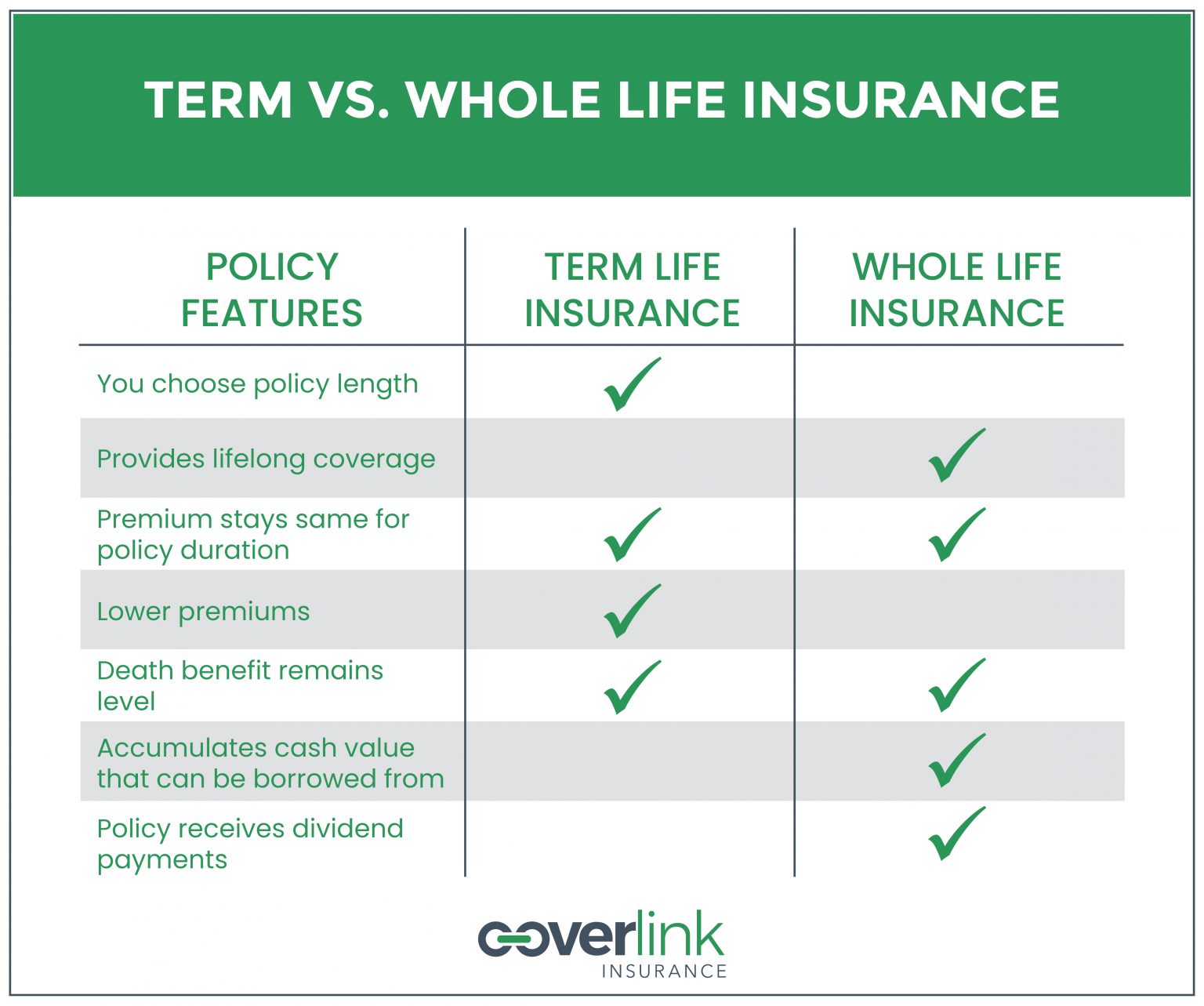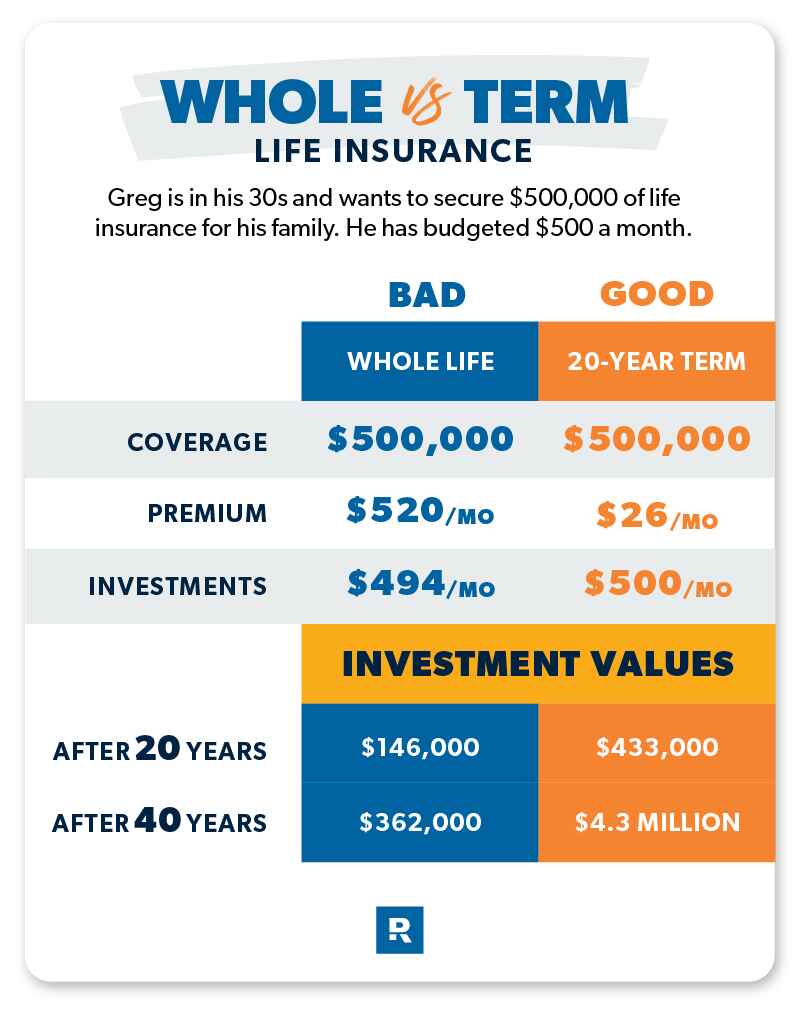:max_bytes(150000):strip_icc()/dotdash-term-life-vs-whole-life-5075430-Final-60fb4e8f7bae43e0a65a3fac2431479c.jpg) Best Tips on Term Life Insurance vs Whole Life: Which is Better for Beginners?
Best Tips on Term Life Insurance vs Whole Life: Which is Better for Beginners?
Choosing the right life insurance policy can seem overwhelming, especially for beginners. Two popular types are term life insurance and whole life insurance. Understanding the key differences between these options is crucial to making an informed decision.
Term Life Insurance vs Whole Life: Understanding the Basics
Here's a breakdown of the key distinctions between term and whole life insurance:
Term Life Insurance
* **Pure protection:** Term life insurance provides coverage for a specific period, typically 10, 20, or 30 years. If you pass away during that term, your beneficiaries receive a death benefit. * **Affordable:** Term life insurance is generally cheaper than whole life insurance, making it a budget-friendly option. * **No cash value:** Term life insurance doesn't accumulate cash value. It's strictly a death benefit policy.Whole Life Insurance
* **Permanent coverage:** Whole life insurance provides lifelong coverage, meaning your beneficiaries will receive a death benefit regardless of when you pass away. * **Cash value component:** Whole life insurance accumulates cash value over time, which can be borrowed against or withdrawn. * **Higher premiums:** Whole life insurance is typically more expensive than term life insurance due to the cash value component.Term Life Insurance vs Whole Life: Which is Right for You?
The best type of life insurance depends on your individual needs and circumstances. Here's a guide to help you decide:
Choose Term Life Insurance if:
* **You're on a budget:** Term life insurance offers the most affordable coverage, making it ideal for individuals with limited financial resources. * **You need coverage for a specific period:** If you need coverage for a specific term, like while your children are young or while you have a mortgage, term life insurance is a suitable choice. * **You prioritize affordability over cash value:** If you're primarily interested in providing financial security for your loved ones in case of your death, term life insurance is a cost-effective option.Choose Whole Life Insurance if:
* **You want lifelong coverage:** Whole life insurance provides coverage for your entire life, ensuring your beneficiaries receive a death benefit regardless of when you pass away. * **You want to build cash value:** The cash value component of whole life insurance can be beneficial for savings, retirement planning, or accessing funds in emergencies. * **You prefer a guaranteed premium:** Whole life insurance premiums are typically fixed, providing predictable financial planning.
FAQs about Term Life Insurance vs Whole Life
Here are some frequently asked questions about term life insurance vs whole life:
Q: Can I convert my term life insurance policy to whole life insurance?
A: Yes, some term life insurance policies offer a conversion option, allowing you to switch to a whole life policy within a certain timeframe. However, conversion premiums are generally higher than the initial term life premium.
Q: Can I borrow money from my whole life insurance policy?
A: Yes, you can borrow against the cash value of your whole life insurance policy. Interest rates are generally lower than traditional loans, but borrowing against the policy can reduce the death benefit.
Q: How much life insurance should I get?
A: The amount of life insurance you need depends on your individual circumstances, including your income, dependents, debts, and desired lifestyle for your family. It's best to consult with a financial advisor to determine the appropriate coverage amount.
Tips for Choosing the Right Life Insurance for You
Here are some tips to help you make the best choice for your life insurance needs:
* **Assess your needs and goals:** Determine your primary reason for purchasing life insurance and consider your financial obligations, dependents, and long-term financial plans. * **Shop around and compare quotes:** Get quotes from multiple insurance companies to compare premiums and coverage options. * **Consider your health and lifestyle:** Your health and lifestyle can impact your premiums. Be truthful about your health history and any risk factors. * **Read the policy carefully:** Understand the terms and conditions of the policy, including exclusions, limitations, and any fees associated with the coverage. * **Seek professional advice:** If you're unsure which type of life insurance is right for you, consult with a financial advisor or insurance agent who can provide personalized guidance.Conclusion: Choosing the Best Life Insurance for You
Both term life insurance and whole life insurance have their advantages and disadvantages. The best choice depends on your individual needs, financial situation, and goals. Term life insurance offers affordable protection for a specific period, while whole life insurance provides lifelong coverage with a cash value component. By carefully considering your needs and comparing options, you can choose the life insurance policy that best meets your needs and provides peace of mind for you and your loved ones.

